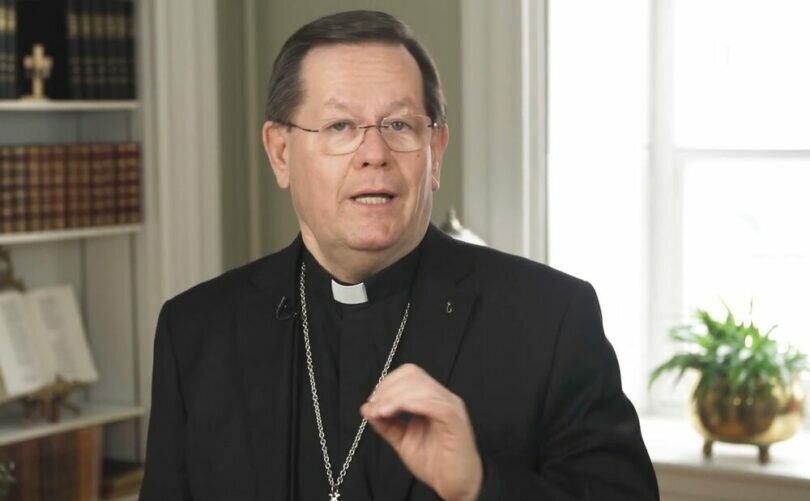LifeSiteNews has been permanently banned on YouTube. Click HERE to sign up to receive emails when we add to our video library.
QUEBEC, Canada, March 5, 2021 (LifeSiteNews) – A Catholic cardinal in Quebec has strongly criticized the province’s government for reopening movie theaters and allowing them to accommodate up to 250 people while keeping churches confined to the 10-person limit.
Cardinal Gérald Lacroix, Archbishop of Quebec, said in a Feb. 19 message posted to the Archdiocese’s website that believers “cannot understand why access to their places of worship remains limited to 10 people in the red zone while cinemas can accommodate up to 250 people.”
Lacroix pointed out how he had previously asked the faithful to support measures put in place by the Quebec authorities in early January that banned all gatherings, including inside churches, across the province. Those measures were later modified that same month to allow a maximum of 10 people for religious gatherings after various religious groups objected.
“Today, it is more difficult for me to express my solidarity with the announced decisions, because they appear to me to be unreasonable and unfair towards the communities of faith,” the Cardinal said, pointing out that the “double standard” is obvious to many people.
“How do we explain the fact that a family going through a bereavement is thus limited to accompany a loved one to church and offer him a Christian funeral when, sometimes in the same neighborhood, it is possible to gather 250 in a cinema,” he said.
Premier François Legault announced Feb. 16 that movie theaters, indoor pools, and indoor gyms would reopen on Feb. 26 across the entire province, including those in areas that are still in the strict “red” lockdown zone. The move came just in time for March break where children would have otherwise been at home with nothing to keep them occupied.
The Cardinal said that the premier’s move “leaves us not only perplexed but also disappointed.”
“Despite all the efforts made in our places of worship to protect the health of our pastors and faithful, we are forced to keep our gathering places virtually closed or limited to 10 people for the various celebrations and 25 people for the funeral.”
Lacroix warned that Catholics “cannot remain silent about the decisions taken by the authorities, which leave us with the impression of discrimination against faith communities.” He invited Catholics to contact their Members of Parliament along with health officials to express their “point of view.”
Archbishop of Montreal Christian Lépine also expressed his concern about the double standard being applied to places of worship.
“If stores and shopping centres are open to the public under compliance with appropriate measures, there is no reason why places of worship should not operate under the same conditions,” he wrote in a Feb. 23 message posted on the diocese’s website.
Lépine stressed in his message that virtual services streamed from churches were not sufficiently nourishing for people’s faith lives.
“Although various initiatives have been undertaken during confinement, including broadcasting Masses and posting numerous videos, these means of communication cannot replace the impact – or the necessity – of being physically, personally present, even if that presence is somewhat reduced,” he wrote.
“Physical presence is fundamental for our overall sense of wellbeing, because praying together, in nourishing the soul, has a reciprocal beneficial effect on our mind and body and on how we engage as social beings. Spiritual nourishment is absolutely necessary, even more so during the present pandemic,” he added.
Lépine called on authorities to “allow 30 percent capacity in our churches and places of worship” where such places would submit to “detailed and rigorous health measures.”
“The question of health remains paramount, but let us never forget that spiritual needs are essential needs, too. In this regard, any adaptation of the regulations based upon church size/dimensions will most assuredly benefit the wellbeing of individuals as well as that of the common good,” he wrote.

